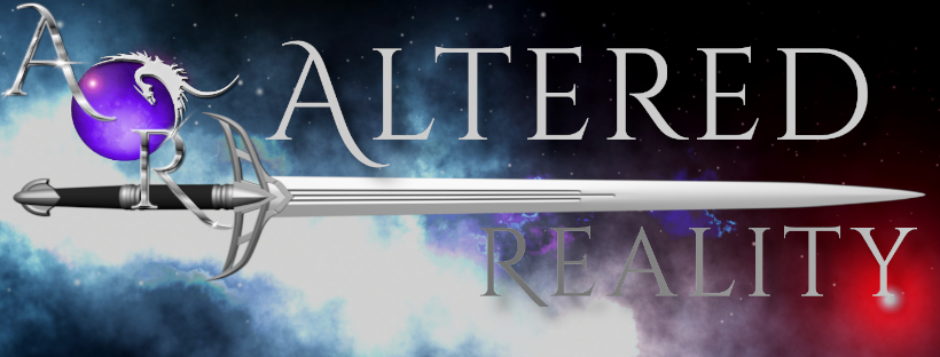Planet Faraway
David Castlewitz
Nobody in Phil Stone’s Faraway appreciation group knew why news of the distant planet disappeared from every site that covered events out there. No artist renditions of the giant warships derived from fuzzy photographs sent back to Earth by Big Eye, the telescope orbiting between Mars and the asteroids. No fictionalized accounts of what many pundits called “global war.” Faraway, the first planet to show signs of advanced alien life, vanished from the data thread.
Phil spent his morning prowling across the U-mesh, popping in and out of 3-D enhanced sites, preferring the two-dimensional retro-pages that harked back fifty years to the late 1990s. He liked bold colors, preferring harsh greens and reds over soft pastels. He even liked the old-style ads consisting of words with crisp drawings instead of immersive displays.
The mystery of why Faraway news had vanished made him pace in his one-room apartment, a unit he’d purchased 10 years earlier as a 25-year-old tech-school grad anxious for the experience of adult life in Chicago. Until Planet Faraway took over his life, he frequented old-time jazz clubs, glass enclosed immersion bars offering virtual experiences, and sports arenas where play was real, the players actual flesh-and-blood.
Until Planet Faraway consumed him, he spent six hours a day at work as a project manager for a small app developer located somewhere in India and the rest of the day either sleeping – maybe four hours a night – and leading a thoroughly enjoyable hedonistic life.
A life he’d just started to resume when The Faraway Commentator appeared in his daily news feed.
Phil blinked on the link on his eye-touch laptop screen and The Commentator presented a flat, two-dimensional page – the retro look he liked – with a still image inside a graphic resembling an old-time TV set: two knobs, no remote.
Ignoring the option to switch to the immersive feed, Phil hunched over his home-office desk, elbows on the edge, his thick chin in his hands, while the commentator talked about Faraway, stressing that the fuzzy images relayed from the orbiting telescope represented Faraway thirty years ago. All the stories told about the planet were derived from observations 30 years old. The radioactive clouds detected by spectral analysis, the disappearance of twinkling lights that denoted large cities, and the destruction of forested swaths of land: all happened 30-years ago.
Phil knew this. Everyone in his appreciation group knew it. But some people, he imagined, were ignorant of that fact, too accustomed to instantaneous updates from foreign countries. They couldn’t comprehend the idea of travel across the vastness of space taking any time at all.
But this news of Faraway said nothing about any recent observations. This wasn’t real news. It explained nothing, and it left Phil as dissatisfied as ever as he closed The Commentator and turned to local happenings around Chicago and then the national news. The one-hundredth anniversary of the dropping of an atomic bomb on Japan, an event he’d read about in his fifth-grade history book, would be honored and remembered.
As the A-Day Memorial approached (actually, three days to span the time between Hiroshima’s destruction and Nagasaki’s), a resurgence of Faraway news consumed Phil’s morning, delaying the start of his workday.
And the news wasn’t good. Explosions had been seen. An oddly shaped mass of what were perceived to be warships floated near the planet. There was evidence of battles in space between those ships.
But there were no published images, no artist depictions. No fictionalized accounts. Just conjectures.
Until after the A-Day Memorial events, when the world’s dignitaries met in Japan to lay wreaths and say prayers and speak of enduring peace.
That’s when the news broke. News that made Phil shudder with grief. Everyone in his appreciation group reacted in similar fashion: crying and turning to one another for solace. What they’d been told about Faraway in the past few days had been an attempt, Phil realized, to manage everyone’s expectations.
Images of Faraway now appeared on the home page of every news site. The fuzzy pictures and ill-defined shapes were of rock and debris. Faraway had been destroyed. The war blew up the planet.
World leaders bewailed the loss. In the aftermath of the A-Day Memorial, sentiment to disarm ran rampant. The call came from nations with vast atomic arsenals and from small countries with miniscule nuclear bombs.
Soon, worldwide disarmament became a reality. One hundred years after the dropping of A-bombs on Japan, Earth dismantled its arsenals of weapons of mass destruction. Even “conventional” weapons were reduced in number, and armies were trimmed in size.
Defense budgets were cut. Money that went to weapons now went to bettering life for Earth’s billions. Borders collapsed. A world government became a possibility, with many small nations relinquishing sovereignty in favor of a new union.
Phil liked this new world, this renewed Earth, which now turned to fight the stifling heat of summer, the vicious storms, and the coastal flooding that drove seaside residents away. Soon, bio-engineered bacteria consumed carbon dioxide and methane. Money once spent on death now went towards life.
Phil continued to consume his news feeds. He listened to short stories about Faraway, even the most fanciful ones full of adventure and heroic fantasy.
Out walking, taking what had become a habitual stroll through a nearby park, enjoying the sound of children squealing as they played, Phil didn’t look up at the sky until he saw a crowd pointing. He guessed they marveled at the appearance of a bacteria engorged cloud chomping on carbon dioxide.
But that wasn’t a cloud up there.
Phil didn’t join the crowd. He stayed on the periphery, on the cement walkway surrounding a green field of grass. He looked up, but didn’t point. He looked, and it took him but a moment to understand what he saw.
Up in the sky, beneath white clouds floating in a sea of blue, triangular shaped spacecraft hovered. They looked just like the artist renditions of Faraway warships.
The End
![]()





